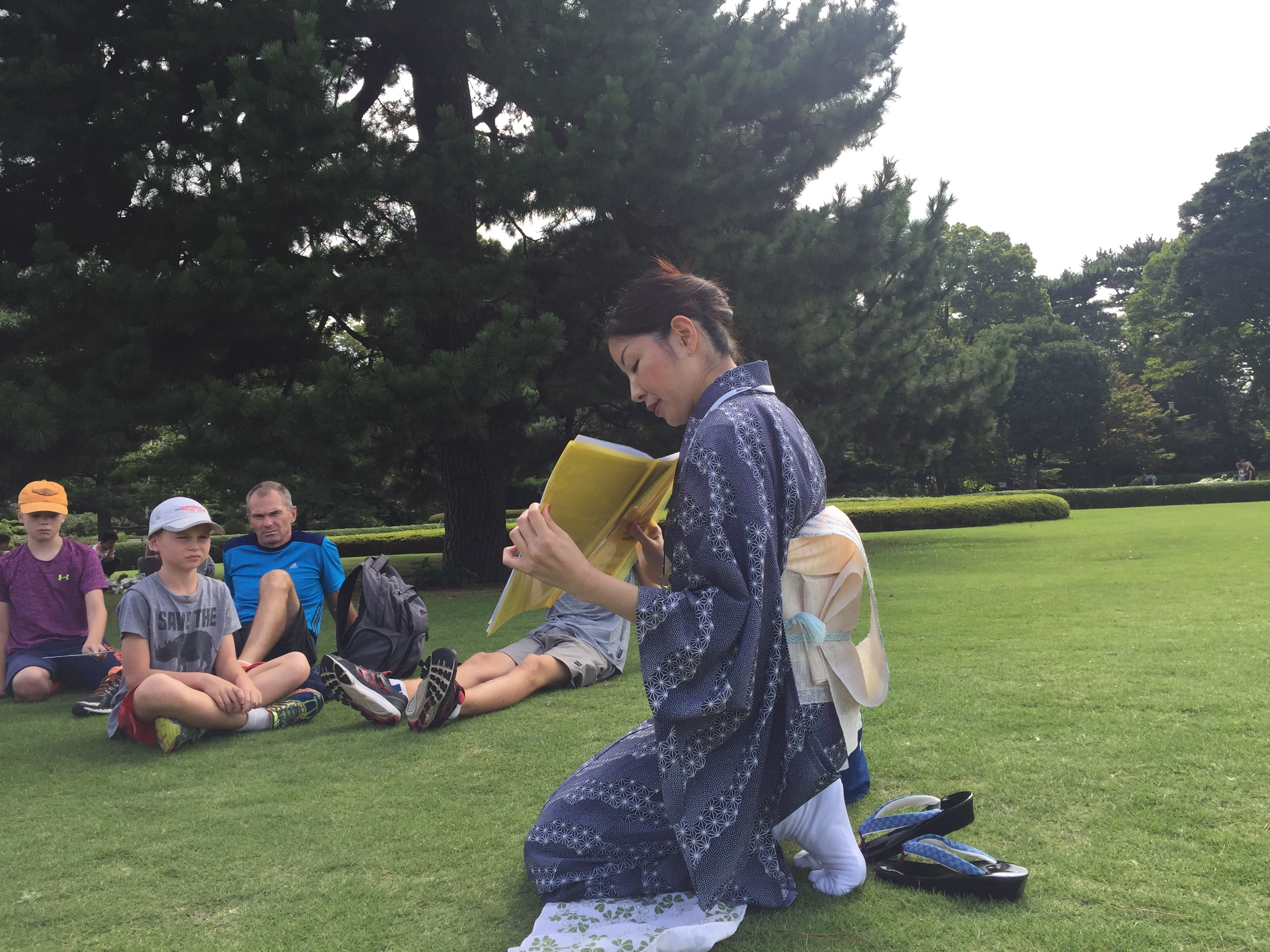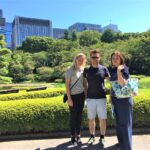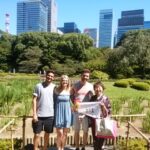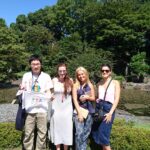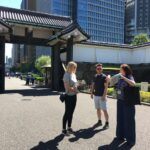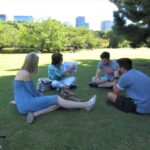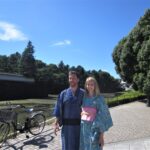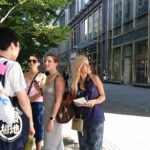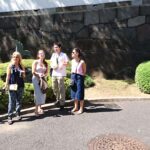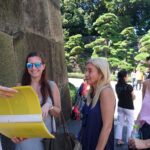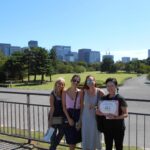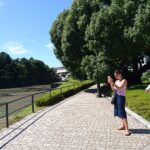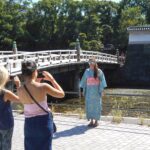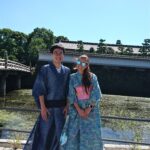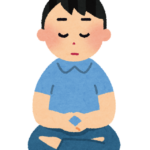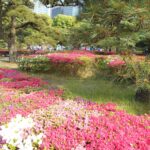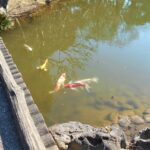Tokyo Free Walking Tour thanks all 8 wonderful guests, who joined the tour on September 21. It was a sunny day with slightly strong winds.
Seeking a Simple Life
Last month I personally attended a summer programme on environmental ethics in Finland. Environmental ethics is a field of philosophy emerged in 1970s that studies the moral relationship between human beings and natural environment.
In this course, the teacher mentioned a theory of Deep Ecology by Arne Naess, a philosopher from Norway (1912-2009). The basic characteristic of his theory is human-in-ecosystem image; it considers human beings and all living things as elements that are related with each other, like ‘knots’ in a net. Naess criticises conventional ecology as ‘Shallow Ecology’ in that it is based on the idea that human beings are separated from nature. In his words, we should ‘protect the planet not only for the sake of humans, but also, for the sake of the planet itself, to keep ecosystems healthy for their own sake’.
Surprisingly, Naess refers to Buddhism when he claims the importance of ‘listening with the third ear’. When it comes to Japan, the spirit of Zen Buddhism might have similarity to the Deep Ecology philosophy.
Zen is a sect of Buddhism that originated in China in the 6th century, and was developed in Japan by the 12th century. The principle of Zen is that everyone has potential to awake to the truth, which is covered by worldly thought in daily life. We can reach the truth only when we remove unnecessary thoughts and desires, through serenity of mind.
Zazen, sitting meditation, is a main practice of acquiring peace of mind. Through zazen activity, you can become free from daily concerns and busyness. The senses of hearing, touching and smelling are sharpened so that you can feel details of natural environment. The meditation gives us an opportunity to reconsider whole ecosystem, greatness of nature, and arrogance of humans.
Ninomaru Garden in Edo Castle, on our regular tour course, is said to follow Zen style of gardening. It was designed by a garden artist Enshu Kobori (1579-1647), whose accomplishments can be found all around Japan.
When you visit the garden, try to feel Zen spirit; pause, relax and control your breath. You will surely have an opportunity to rethink about natural environment, acquire humble attitude towards nature, and seek a simple life.
(Images from http://www.asoview.com/, http://www.soto-kinki.net/, http://www.irasutoya.com/)
By Hiroshi N.
==========
Tokyo Free Walking Tour has regular tours every Saturday and has irregular tours in weekdays and Sundays.
If you are in Tokyo, why not come and join us?
Visit our website, Facebook and tripadvisor for the latest schedule!

